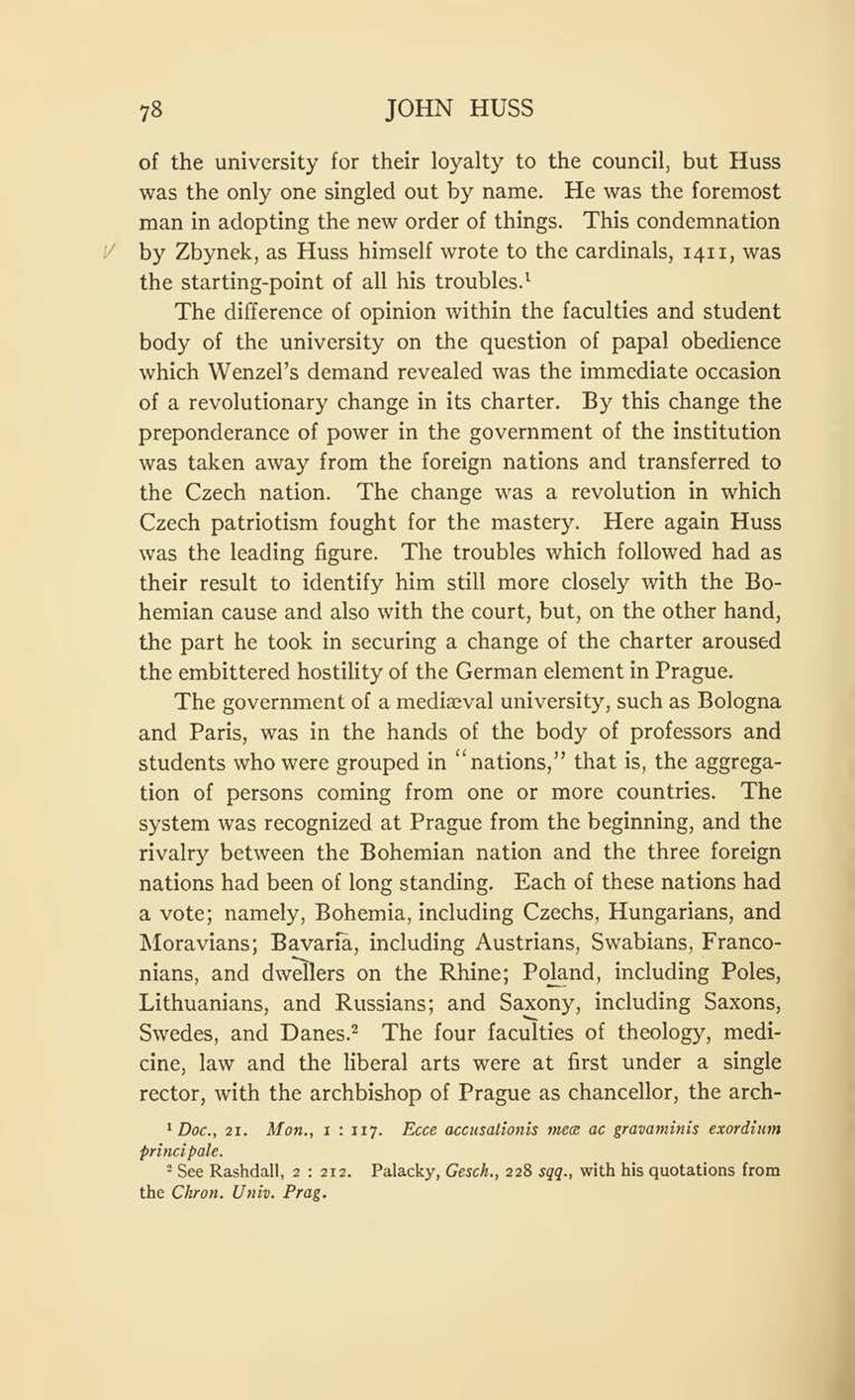of the university for their loyalty to the council, but Huss was the only one singled out by name. He was the foremost man in adopting the new order of things. This condemnation by Zbynek, as Huss himself wrote to the cardinals, 1411, was the starting-point of all his troubles.[1]
The difference of opinion within the faculties and student body of the university on the question of papal obedience which Wenzel’s demand revealed was the immediate occasion of a revolutionary change in its charter. By this change the preponderance of power in the government of the institution was taken away from the foreign nations and transferred to the Czech nation. The change was a revolution in which Czech patriotism fought for the mastery. Here again Huss was the leading figure. The troubles which followed had as their result to identify him still more closely with the Bohemian cause and also with the court, but, on the other hand, the part he took in securing a change of the charter aroused the embittered hostility of the German element in Prague.
The government of a mediaeval university, such as Bologna and Paris, was in the hands of the body of professors and students who were grouped in “nations,” that is, the aggregation of persons coming from one or more countries. The system was recognized at Prague from the beginning, and the rivalry between the Bohemian nation and the three foreign nations had been of long standing. Each of these nations had a vote; namely, Bohemia, including Czechs, Hungarians, and Moravians; Bavaria, including Austrians, Swabians, Franconians, and dwellers on the Rhine; Poland, including Poles, Lithuanians, and Russians; and Saxony, including Saxons, Swedes, and Danes.[2] The four faculties of theology, medicine, law and the liberal arts were at first under a single rector, with the archbishop of Prague as chancellor, the arch-
